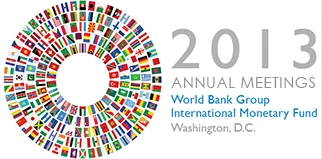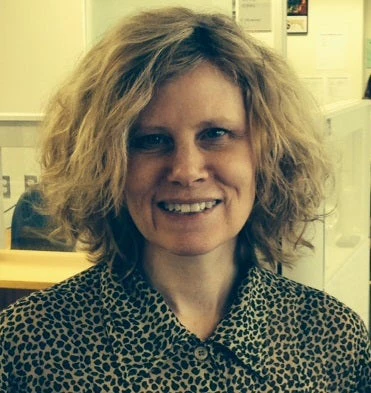President Jim Yong Kim outlined his plan for a leaner, more efficient and tightly knit World Bank Group in his opening address at the Annual Meetings — and listed several ways changes would be visible to countries working with the institution. Among them: reducing by a third the amount of time a project takes to get off the ground; gathering feedback from all beneficiaries on development projects; and openly sharing knowledge and experience, including making it easy to see exactly where the Bank is working and what it is doing. “Together, we must urgently lift a billion people from extreme poverty, help them to regain dignity, help them find hope, and help them change their own lives — and the whole world’s future — for the better,” said Kim. The Development Committee discusses the Bank Group’s new strategy on Saturday.
An excited crowd greeted Malala Yousafzai, the 16-year-old whose fight for girls’ education earned her the European Union’s Sakharov prize for freedom of thought and a Nobel Peace Prize nomination this year. In an often humorous, sometimes touching conversation with President Kim and young people in the audience on International Day of the Girl, Malala talked about her life before and after an assassination attempt by the Taliban. Her cause, education, is the best way to fight poverty and should be the top priority of development institutions, she said. “I believe that when we work together, that it’s really easy for us to achieve our goals,” she said. Kim pledged $200,000 to the Malala Fund on behalf of the World Bank. Replay the webcast and read our Youthink blog.

USAID Administrator Rajiv Shah, U.K. Secretary of State for International Development Justine Greening, Gapminder Foundation Director Hans Rosling, and ministers from eight countries participated in What Will It Take to Achieve Both Healthy Children and Healthy Economies? The event, including a data visualization by Rosling, highlighted key achievements, investments, partnerships, and challenges in nutrition and health for women and children. Replay the webcast.
About 2.5 billion adults worldwide are “unbanked” and close to 200 million businesses in developing economies lack access to affordable financial services and credit. How could technology and innovation turn this situation around? Queen Máxima of the Netherlands, Nigeria Finance Minister Ngozi Okonjo-Iweala, banking CEOs, and World Economic Forum founder Klaus Schwab discussed the possibilities and set forth a vision for achieving universal financial access by 2020. Read the release and replay the webcast.
A high-level panel including the prime ministers of Democratic Republic of the Congo and Timor-Leste and World Bank Group Managing Director and COO Sri Mulyani Indrawati took up the issue of how fragile or conflict-affected countries can ensure their valuable and sought-after “extractive” resources drive economic growth, prosperity and stability. Replay the webcast of Blessing or Curse: Making Earth's Riches Work for Poor and Fragile Countries.
Of Note:
Emerging Europe and Central Asia Is On the Rebound
Economic growth in the Emerging Europe and Central Asia has started to rebound, with projected modest growth rates of 2.2% in 2013 and 3.1% in 2014, World Bank officials said at a press briefing. However, compared to other regions in the world, the region has had the slowest recovery of growth and remains vulnerable to risks in a dynamic global economy.
Transition to Open Government in the Arab World
Replay the webcast and live blog of an event highlighting key reforms in the region, where progress is being made on establishing the foundation for greater access to information and public engagement. Government representatives, private sector executives, academics and Bank-Fund staff weigh in on this important development agenda.
Watch Live or Follow on Twitter with #wblive:
2013 Annual Meetings Development Committee Press Briefing
Saturday, 5:30-6:15 p.m. ET



Join the Conversation